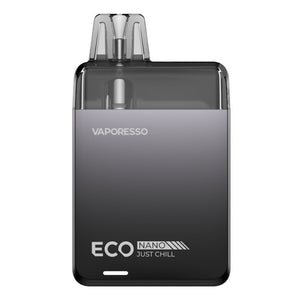Top 30 vaping most popular questions answered

Part 1 of our 30 most popluar questions
There is a lot of questions when it comes to the vaping industry. We have compiled a list of the most popular 30 questions asked and we'll go over and answer some of the most common questions asked.
1: What is Vaping?
Vaping is the act of inhaling and exhaling the vapor produced by an electronic cigarette or similar device. E-cigarettes are devices that allow you to inhale nicotine and other substances in vapor form, rather than smoke. They are often used as an alternative to smoking traditional cigarettes, and are sometimes promoted as a safer alternative to smoking.
2. Are e-cigarettes less harmful than smoking?
There is evidence to suggest that e-cigarettes may be less harmful than smoking, but more research is needed to fully understand the long-term health effects of vaping. Some studies have found that e-cigarettes are lot less toxic than traditional cigarettes, and is a useful tool for helping smokers quit smoking. However, e-cigarettes are not completely without risk, and more research is needed to understand the potential health effects of long-term use. If you do choose to use e-cigarettes to help quit smoking, it is important to follow the manufacturer's instructions and to use caution when handling the device.
3: Is vaping addictive?
Yes, vaping can be addictive. E-cigarettes and other vaping devices can contain nicotine, which is a highly addictive substance. In addition to nicotine, e-cigarettes can also contain other addictive substances, such as flavorings and additives, which can be inhaled along with the vapor. Some people who use e-cigarettes may become dependent on them and experience withdrawal symptoms if they try to stop using them.
Symptoms of nicotine withdrawal can include irritability, cravings, difficulty concentrating, and changes in mood. If you are concerned about your own or someone else's use of e-cigarettes or vaping devices, it is important to speak with a healthcare provider for advice and support.
4: What is an E-cigarette?
An e-cigarette, or electronic cigarette, is a device that allows you to inhale nicotine and other substances in vapor form. It typically consists of a battery, a heating element, and a cartridge that contains a liquid solution. When the device is activated, the heating element vaporizes the liquid, which can then be inhaled through the device. E-cigarettes come in a variety of shapes and sizes, and can be designed to look like traditional cigarettes, pens, or other objects. They are often used as an alternative to smoking traditional cigarettes, and are promoted as a safer alternative to smoking.
5: Is there such a thing as secondhand vaping?
Yes, there is such a thing as secondhand vaping. When someone uses an e-cigarette or other vaping device, the vapor that is exhaled can be inhaled by others nearby. This is known as secondhand vaping. Some studies have suggested that secondhand vapor from e-cigarettes may contain smaller amounts of toxicants than secondhand smoke from traditional cigarettes, but more research is needed to fully understand the potential health effects of secondhand vaping. It is important to note that the vapor produced by e-cigarettes is not just water vapor, and it can contain a variety of substances, including nicotine, flavorings, and other additives.
6: What is in vape juice?
Vape juice, also known as e-liquid or e-juice, is a liquid solution that is used in e-cigarettes and other vaping devices. It typically contains a mixture of four main ingredients: propylene glycol, vegetable glycerin, flavorings, and nicotine.
Propylene glycol is a colorless, tasteless, and nearly odorless liquid that is used as a solvent for food colors and flavors. It is a common ingredient in many food and personal care products, and is generally considered to be safe for consumption.
Vegetable glycerin is a clear, odorless liquid that is derived from vegetable oils. It is thicker and sweeter than propylene glycol, and is often used in combination with propylene glycol in vape juice.
Flavorings are used to give vape juice its distinctive taste and smell. There are thousands of different flavors available, including fruit, dessert, and tobacco flavors.
Nicotine is a powerful stimulant that is found naturally in the tobacco plant. It is highly addictive, and can have harmful effects on the body when consumed in large amounts. The amount of nicotine in e-liquid can vary widely, and some e-liquids are available with no nicotine at all.
7: Do e-cigarettes help people stop smoking?
E-cigarettes and other vaping devices are sometimes used as a tool to help people quit smoking. Some studies have suggested that e-cigarettes may be effective for helping smokers quit smoking, at least in the short term.
For example, a study published in the New England Journal of Medicine found that e-cigarettes were more effective for helping smokers quit than nicotine replacement therapy products, such as patches and gum. However, it is important to note that more research is needed to fully understand the long-term effectiveness of e-cigarettes for smoking cessation, and the safety of long-term use is not yet known.
If you are trying to quit smoking, it is important to speak with a healthcare provider for advice and support. They can help you identify the most appropriate treatment options for your needs.
8: Should e-cigarettes be banned?
The safety and effectiveness of e-cigarettes as a tool for smoking cessation and harm reduction are currently the subject of ongoing debate and research. Some studies have suggested that e-cigarettes may be less harmful than smoking traditional cigarettes, and may be a useful tool for helping smokers quit smoking.
Given the ongoing debate about the safety of e-cigarettes, there is no clear answer to the question of whether they should be banned. Some countries and states have implemented bans on e-cigarettes or certain types of e-cigarettes, while others have placed restrictions on their use or sale.
The decision to ban e-cigarettes or regulate their use is typically made at the national or local level, and takes into account a variety of factors, including the potential risks and benefits of e-cigarette use, as well as public health considerations. If you have concerns about e-cigarettes or the risks and benefits of using them, it is important to speak with a healthcare provider for advice and guidance.
9: Should flavours be banned to stop youth vaping?
There is concern that the availability of flavored e-cigarettes and e-liquids may be contributing to the increase in e-cigarette use among youth. Some research has suggested that flavored e-cigarettes may be particularly appealing to young people, and that flavored e-cigarette use is associated with a higher likelihood of continued e-cigarette use among youth. In response to these concerns, some countries and states have implemented bans on flavored e-cigarettes or e-liquids, or have placed restrictions on their sale.
Whether flavors should be banned to stop youth vaping is a complex and controversial issue, and there is ongoing debate about the most appropriate way to address this problem. Some people argue that flavors play a important role in helping adult smokers switch to e-cigarettes as a less harmful alternative to smoking, and that banning flavors could make e-cigarettes less appealing to adult smokers, potentially leading to an increase in smoking rates. Others argue that the potential risks of flavored e-cigarette use among youth outweigh the potential benefits for adult smokers, and that flavor bans are necessary to protect the health of young people.
Ultimately, the decision to ban flavors or regulate their use is typically made at the national or local level, and takes into account a variety of factors, including the potential risks and benefits of flavored e-cigarette use, as well as public health considerations. If you have concerns about youth vaping or the risks and benefits of flavored e-cigarettes, it is important to speak with a healthcare provider for advice and guidance.
10: Is nicotine dangerous?
Nicotine is a highly addictive substance that is found naturally in the tobacco plant. It is a stimulant that can have harmful effects on the body when consumed in large amounts.
Nicotine can be harmful to the developing brains of adolescents, and can impact learning, memory, and attention. It can also increase the risk of addiction to other drugs, and may be a factor in the development of mental health disorders.
In addition, nicotine can have harmful effects on the cardiovascular system. It can increase heart rate and blood pressure, and may contribute to the development of heart disease.
It is important to note that while nicotine is harmful, it is the other toxic substances in tobacco smoke, such as tar and carbon monoxide, that are responsible for the majority of the health risks associated with smoking. E-cigarettes and other vaping devices deliver nicotine without the smoke, but they are not completely without risk, but are a much healthier alternative.
11: is it ok to smoke and vape at the same time?
No, it is not safe to smoke and vape at the same time. Both smoking and vaping can have harmful effects on your health, and combining the two is likely to increase your risk of negative health outcomes.
Smoking cigarettes is a leading cause of preventable disease and death, and is responsible for a wide range of serious health problems, including lung cancer, heart disease, stroke, and chronic obstructive pulmonary disease (COPD). Vaping is generally considered to be less harmful than smoking, but long term use has not had enough evidence at the moment.
If you are currently smoking, it is important to try to quit smoking as soon as possible. Smoking is one of the most significant risk factors for a wide range of serious health problems, and quitting smoking is the single most important thing you can do to protect your health. There are many resources available to help you quit smoking, including using a vape kit, nicotine replacement therapy, prescription medications, and behavioral counseling.
12: Does Vaping cause health problems?
There is ongoing debate and research about the potential health risks of vaping. Some studies have suggested that vaping may be less harmful than smoking, and may be a useful tool for helping smokers quit smoking. However, e-cigarettes and other vaping devices are not without risks, and more research is needed to fully understand the long-term health effects of vaping.
There have been a number of reports of serious health problems associated with e-cigarette use, including lung injuries and deaths. These problems have been linked to the use of contaminated or counterfeit e-cigarette products, as well as to the use of e-cigarette products containing THC, the psychoactive compound in marijuana. It is important to note that the vast majority of these cases have been linked to the use of unregulated, black-market e-cigarette products, and that the risks associated with the use of regulated, commercially available e-cigarette products are not well understood.
In addition to the potential risks of vaping, it is important to note that e-cigarettes and other vaping devices contain nicotine, which is a highly addictive substance and can have harmful effects on the body when consumed in large amounts.
13: Will e-cigarettes be cheaper then smoking?
It is possible that e-cigarettes and other vaping devices may be less expensive than smoking, depending on a variety of factors, such as the type of e-cigarette or vaping device that you use, the cost of e-liquid or other supplies, and the price of traditional cigarettes in your area.
In general, e-cigarettes and vaping devices tend to be less expensive than traditional cigarettes over the long term, because you can use them multiple times before they need to be replaced. With traditional cigarettes, you must purchase a new pack each time you want to smoke, which can add up over time.
However, it is important to note that the initial cost of purchasing an e-cigarette or vaping device can be higher than the cost of a pack of cigarettes. In addition, the cost of e-liquid or other supplies, such as replacement coils or batteries, can vary widely, and may add to the overall cost of using e-cigarettes or other vaping devices.
It is also worth noting that the cost of smoking and vaping is not just financial. Both smoking and vaping can have negative impacts on your health, and the long-term health costs of smoking and vaping can be significant. If you are trying to decide whether to switch to e-cigarettes or other vaping devices, it is important to consider the potential risks and benefits, as well as the financial costs, before making a decision. If you have concerns about your own or someone else's smoking or vaping habits, it is important to speak with a healthcare provider for advice and guidance.
14: Can e-cigarettes explode?
Yes, e-cigarettes and other vaping devices can explode, although this is rare. Most e-cigarette explosions occur when the device's battery fails, although there have been instances of e-cigarette explosions due to other causes, such as the device's heating element malfunctioning or the device being damaged.
E-cigarette explosions can be serious, and can cause burns, injuries, and property damage. If you are using an e-cigarette or other vaping device, it is important to follow the manufacturer's instructions, and to use caution when handling the device. It is also important to regularly inspect your device for signs of wear or damage, and to replace the device if it appears to be malfunctioning.
If you are using an e-cigarette or other vaping device, it is important to be aware of the potential risks and to use caution when handling the device.
15: Can i use e-cigarettes in places where i can't smoke?
The rules and regulations regarding the use of e-cigarettes and other vaping devices vary by location. In some places, e-cigarettes are treated the same as traditional cigarettes, and are subject to the same restrictions on use. In other places, e-cigarettes are subject to different rules and regulations, and may be allowed in places where traditional cigarettes are not.
It is important to be aware of the rules and regulations regarding e-cigarette use in your area, and to follow them when using e-cigarettes or other vaping devices. In many places, it is against the law to use e-cigarettes or other vaping devices in public places where smoking is prohibited, including schools, hospitals, and other places where children and youth are present. In addition, many businesses and other organizations have their own policies regarding the use of e-cigarettes and other vaping devices on their premises, and it is important to respect these policies when you are in these locations.
If you are unsure about the rules and regulations regarding e-cigarette use in your area, it is a good idea to check with local authorities or the establishment where you are planning to use your e-cigarette or vaping device to make sure that you are following the rules.
You can find part 2 of our top 30 most popular questions here
-
Posted in
vaping






